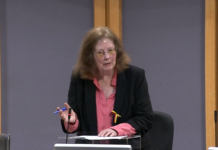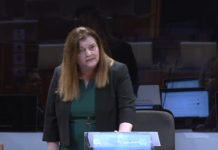My Neighbours’ Bonfire Night Party is Causing a Nuisance. What Can I Do?
As the 5th of November approaches, the excitement of fireworks, sparklers, and bonfires fills the air, bringing joy to both adults and children. While these celebrations can be thrilling, it’s important to keep in mind that they can also pose serious risks if not handled properly, resulting in harm or property damage.
In light of this, questions arise about legal responsibilities and restrictions surrounding Bonfire Night activities. Who bears the responsibility if someone sustains an injury from a firework at a house party? Are there limitations on when one can have a bonfire? What actions can you take if your neighbour’s festivities become hazardous?
Grace Dutton, Legal Adviser at DAS Law, is here to shed light on the laws surrounding private firework displays and Bonfire Night celebrations to ensure a safe and enjoyable experience for all.
Who can buy fireworks?
It is legal for consumers to purchase fireworks any time of the year. However, they must be aged 18 and over to purchase them. It is illegal for anyone under the age of 18 to be in possession of fireworks in a public place.
You can only buy fireworks (including sparklers) from registered sellers for private use on these dates:
15 October to 10 November
26 to 31 December
3 days before Diwali and Chinese New Year
At all other times you can only buy fireworks from licensed shops.
Which type of fireworks can be let off?
Adult fireworks (category 2 or 3) can be let off by any person on private property. Only licensed professionals can let off category 4 fireworks, whether this is on private property or within an organised public firework display.
What is the curfew?
Generally, fireworks on private property may be set off all year-round between 7 a.m. and 11 p.m. However, at certain times of the year the curfew is extended e.g. to midnight on Bonfire Night and 1 am on New Year’s Eve, Chinese New Year and Diwali.
It is important to note that local by-laws may affect these curfews, so it is worth checking with your local authority whether there are any extra limitations.
How to stay on the right side of the law if you are holding your own fireworks display?
To legally hold your own fireworks display without falling foul of criminal law you must be over 18, have bought the fireworks from a licensed supplier, and, if you’re setting them off in a public place, have obtained permission from the relevant authority.
Whilst it is legal to set them off on private land, if you’re a tenant in a property it is worth checking with the landlord if there’s any stipulation preventing setting off fireworks in your lease.
It is important to note that you have a duty of care to ensure the safety of your neighbours and visitors if you have your own fireworks display. Check the online guidelines of the RoSPA (Royal Society for Prevention of Accidents) to ensure that you are well-informed about the necessary precautions to take.
Any negligence such as setting them off in an inappropriate environment or against the published instructions resulting in injury to someone or property damage could make you liable for a civil claim.
If you are setting off fireworks on private land, it is also advisable to check your home insurance cover limits to see what protection there is for damage caused by explosion, fire or smoke. As above, most insurers will typically have a ‘duty of care’ clause so if you claim, you may need to show you have taken reasonable precautions.
Can you burn anything on a bonfire?
No, you cannot. Under the Environmental Protection Act 1990, it is an offence to burn any substance that will release harmful fumes causing pollution to the environment or harm to human health (these could include plastic, rubber or painted items).
You need to ensure that the fire is contained and does not escape causing damage or injury to people. It is also an offence if anyone on a public road is “injured, interrupted or endangered” by fire or smoke from your bonfire.
Can you prevent your neighbour from having a bonfire?
It is unlikely that you would be able to prevent your neighbour from having a bonfire if they are doing so occasionally and are not burning hazardous material. If the neighbour’s fire is posing a clear risk to the safety of your property this could be reported to the fire service.
Alternatively, if the neighbour is burning hazardous material or causing harm to human health, you can report this to your local council who will investigate and serve an abatement notice if the neighbour is found to be causing a nuisance. If a neighbour’s bonfire or fireworks cause damage to your property, whose insurance should be claimed?
If property is damaged because a neighbour did not contain a fire, safely light fireworks, or take appropriate steps to prevent a fire from escaping or getting out of control, that neighbour could be liable for the damage caused to the fence.
If it is your neighbour’s fault, they should claim on their insurance, but you cannot insist they do so. However, when faced with a potential claim for damages the neighbour may choose to get their insurance company involved instead of dealing with it themselves.
What are the legal ramifications if you are injured by a firework at a friend’s or family party?
An occupier of land, under the Occupiers Liability Act 1957, owes a duty to any visitor to take reasonable care to ensure the visitor is safe on the premises. Therefore, if someone is hosting a fireworks party, they should ensure they are purchasing the fireworks from a licensed outlet, that they read the instructions carefully before use, and that they light the fireworks from a safe place. If you are injured, you may be able to hold the organiser of the event liable.
If a firework malfunctions and you are injured, you may be able to hold the manufacturer liable under the
Consumer Protection Act 1987. It is a good idea for the organiser to keep the receipt, packaging and any instructions.
What recourse do I have if my neighbour is causing a nuisance?
If your neighbour’s bonfire or fireworks are affecting you, the first step would be to raise it with the neighbour to make them aware of the impact the bonfire has on you. If this fails, then you may be able to get a court order restricting the neighbour’s ability to have a bonfire.
The occasional bonfire is unlikely to amount to a legal nuisance and legal advice should be sought when considering legal action against your neighbour.
If your neighbour’s bonfire or firework display is likely to be hazardous to your health and unreasonably interfere with the enjoyment of your property, then you can report them to the local environmental health team. The local authority may then investigate and serve an abatement notice where appropriate.
What to do if someone is setting them off in my street late at night – what are my rights, what does the law say?
If you buy fireworks for personal use, you are only allowed to use them on your private property or property where you have the consent of the landowner. It is considered a criminal offence to set off fireworks in the street or other public places without permission and you can contact the police if someone is breaking the law (including sparklers). If you want to set them off in a public place for events, such as for a street party, you will need to obtain express permission from the local authority.
What happens if you break the law?
Under the Firework Act if you break the law around firework use you can receive a prison sentence of up to six months and an unlimited fine. Breaching of the act constitutes a criminal offence, however, if you cause any damage to property or injury to someone, you may be liable for a civil offence and could be sued for negligence.
Further information on legal topics can be found on DAS Householdlaw. To find out if you have access to this resource, please consult your policy documentation or contact your insurance broker.
Disclaimer: This information is for general guidance regarding rights and responsibilities and is not formal legal advice as no lawyer-client relationship has been created.
Help keep news FREE for our readers
Supporting your local community newspaper/online news outlet is crucial now more than ever. If you believe in independent journalism, then consider making a valuable contribution by making a one-time or monthly donation. We operate in rural areas where providing unbiased news can be challenging. Read More About Supporting The West Wales Chronicle

























